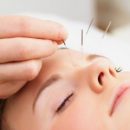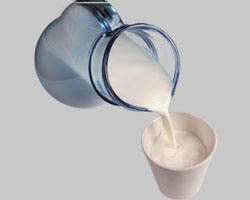 Premenstrual syndrome (PMS) – This is a problem that each second woman faces. Syndrome has about 150 symptoms, begins to manifest itself 2 weeks before menstruation. All symptoms can be divided into several basic groups:
Premenstrual syndrome (PMS) – This is a problem that each second woman faces. Syndrome has about 150 symptoms, begins to manifest itself 2 weeks before menstruation. All symptoms can be divided into several basic groups:
- Anxiety, irritability, insomnia;
- Increase the appetite, craving for sweet, headaches, weakness;
- depression, forgetfulness, inattention;
- Hyper-moisturizing with moisture retention, increase body weight, milk gland seal.
The exact causes of the appearance of PMS are not known, it is believed that it has a connection with a balance between two Women's hormones Estrogen and progesterone. It is also known that the hormone progesterone cannot successfully bind to cell receptors at a low blood glucose level. Therefore, one of the options for reducing the effect of PMS on a female organism – This food.
Regular use of carbohydrates (complex carbohydrates) provides normal hormone grip of progesterone with cellular receptors. In one study, women with PMS used food containing a large amount of carbohydrates in the form of whole grain bread, rice and other cereals, dried fruits, fruits, the effect of declining PMS was observed in 50% of respondents, 20% felt some improvement, 19% completely got rid of the symptom.
Pay attention to other changes in the meal you need to be taken to reduce the PMS:
Inclusion in your rations, seeds and sea fish fatty varieties, as Omega-3 fatty acids contribute to the improvement of the hormonal balance.
Reducing the use of salt, as it favors the retention of moisture.
Refusal of alcohol and caffeine to reduce irritability and depressiveness.
Vitamin and mineral complexes against PMS
Various vitamin and mineral complexes contribute to the decrease in the effects of PMS, but, unfortunately, their effectiveness is also not high, and they need to take them in a cycle of three months.
Vitamin Mineral Complexes Must include the following vitamins and minerals:
Magnesium. We are needed to stabilize blood sugar levels. Magnesium reduces the symptoms of irritability, anxiety, fatigue, headaches, reduces swelling. Mineral also acts as a muscular relaxant. Interacting with vitamin B6, it helps, reduce negative effects from excess hormone estrogen; Interacting with zinc, regulates the process of formation by sex hormones of some genes.
Vitamin B6. In addition to the above affects the decrease in irritability and other emotional symptoms, as well as weakness and dizziness.
Vitamin D and calcium Reduce headaches, puffiness, positively affect the emotional level.
More details about the reception of this or that drug is best to consult with the doctor. In conclusion, it should be noted that in the case of a particularly acute manifestation of PMS, it is necessary to consult a doctor.









